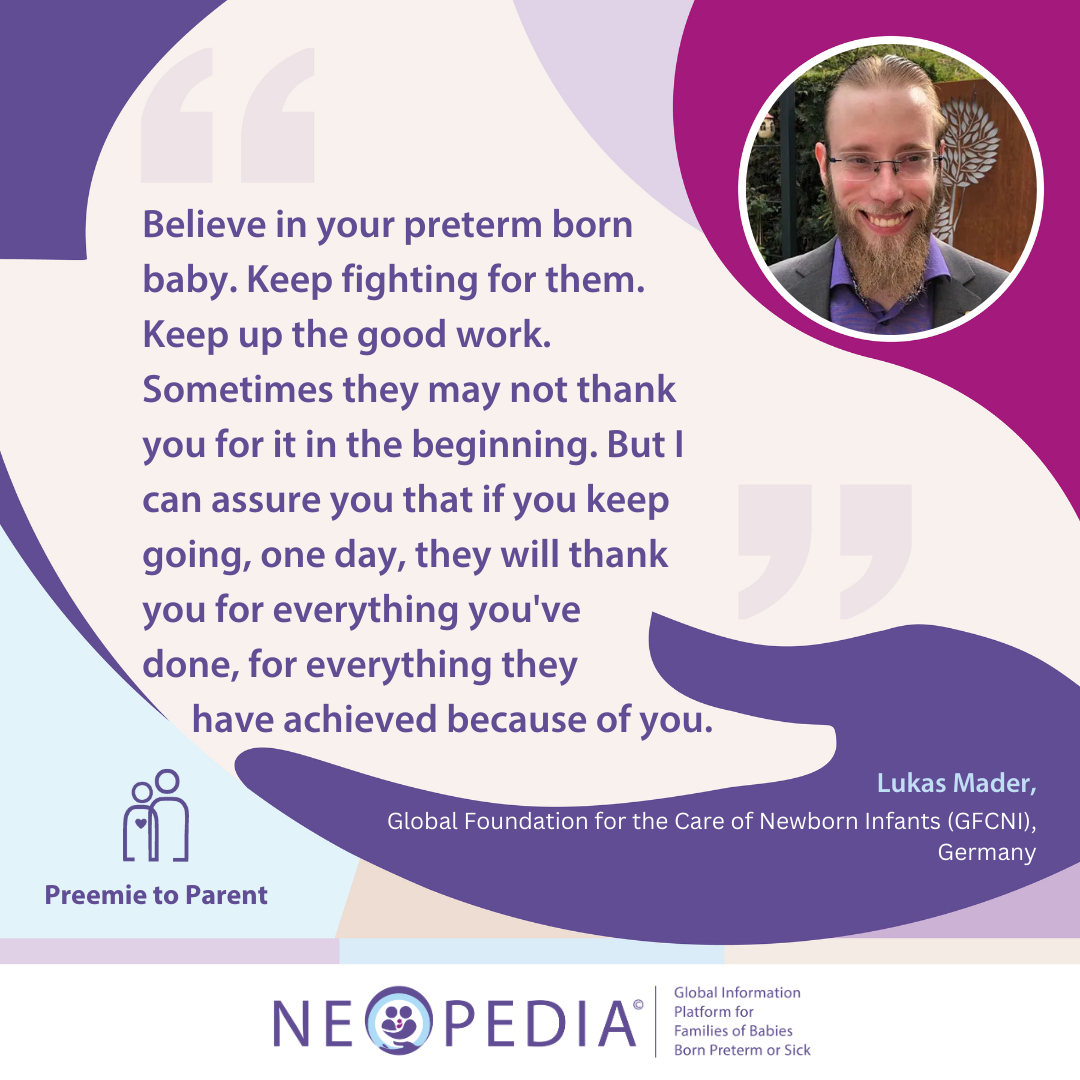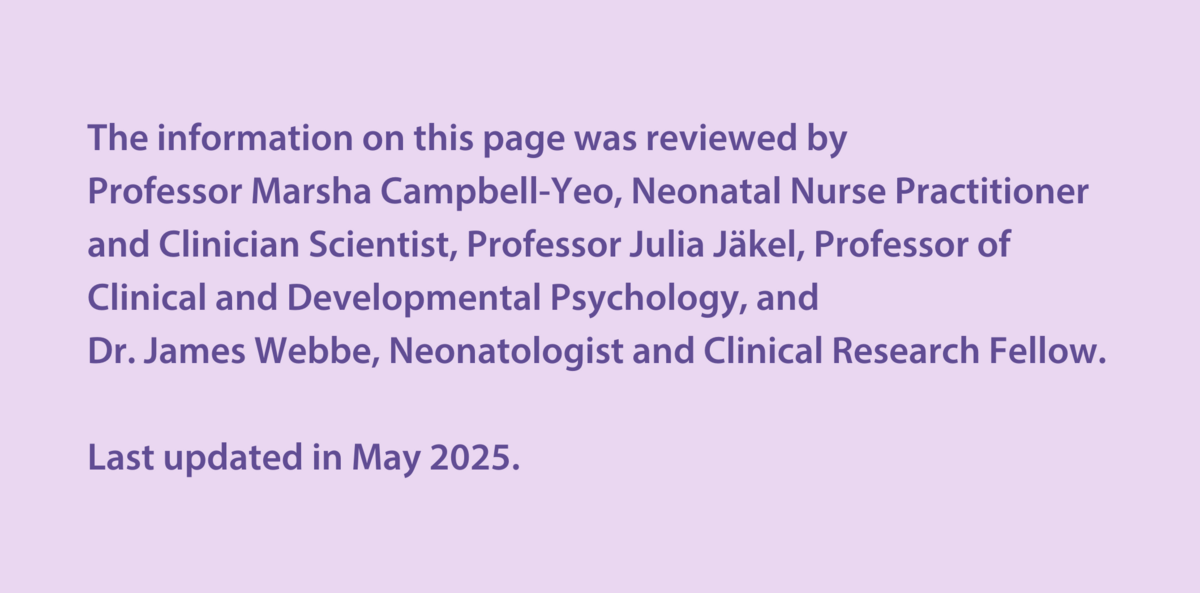
Some countries have special programs to help the development of very preterm or sick babies, often called “early intervention” or “specialized care” programs. Before you leave the hospital, it is a good idea to talk to your healthcare team about your options.
Early intervention programs help babies and toddlers who might have delays or disabilities. They offer therapies, educational activities, and support for families to help the child grow and get ready for school.
Tips on early intervention activities for parents
To help your preterm or sick baby’s vision development, try doing regular massages and visual interactions. You might start giving massages twice a day three weeks after birth and do visual interactions once a day from about 34 weeks gestation⍰, depending on your baby’s wellbeing. Tummy time, when babies are placed on their tummy while awake, helps support muscle development and build strength. According to research, these simple actions can boost your baby’s brain and vision development. It is a good idea to take a baby massage course to learn how to massage your baby. If possible, look for courses that focus on babies with special needs. These groups are usually smaller, and many parents have gone through similar experiences with their babies.
In general, for children of all ages, it is a great idea to spend quality time together. This could mean cuddling, putting phones away to focus on each other, keeping screen time very limited, especially for young children, doing physical activities, or reading books together. These activities are, of course, not only for preterm babies – they are wonderful ways to connect and support your child’s development.

